Our motto is “Hope for the best and prepare for the worst!” even though hoping has little to do with the outcome of a disaster.
An SHTF event can hit unexpectedly and the manner in which you act, but most importantly, the timing will be the main key to determine your odds for surviving.
The following article can be classified under the “common sense” category although, many of us know too well, common sense has become a rarity nowadays. Before starting to evacuate or hunkering down, it is mandatory to stop and think, and to act with a clear mind.
There may be little to no warning before a crisis arises, and people usually start panicking when time is running out. The event is the main thing that will dictate your course of action and response time, regardless if you are a prepper or not. However, to make sure you are doing the right thing, you need to develop a crisis mindset.
This type of mindset is common among first responders and other agencies dealing with the natural or social element. They develop it through regular training on the field, and the lessons they learn following a certain real-life event will often become a new chapter in their training manuals.
For the common Joe, it would be ideal to be aware of the signs of an impending emergency situation. However, due to our way of life and the fast-moving times, developing a good sense of awareness is almost impossible. Even so, if you will ever have to face a disaster, you should remain calm and figure the answer for the following questions before making the next move.
Ask yourself this when SHTF:
1. Am I Ok? Are those that count OK as well?
During a stressful event, you could be hurt without even comprehending it. Due to the adrenaline rushing through their veins, most people don’t realize they are hurt only after the event has come to a stop. This is a common occurrence during terrorist attacks, and panic, combined with an adrenaline rush, makes people unaware of what happens to them. Their well-being may be at risk, but they won’t check themselves due to other “priorities.”
Regardless of the event currently unfolding, you should first make sure you are ok. Once you have established that you were not exposed to physical harm, you can check those close to you.
Under certain circumstances, you may not provide medical assistance to everyone surrounding you. If you happen to find yourself in such a scenario, your loved ones should become your main and only priority.
If you are not together, the next step would be to get in touch with them by telephone or other means of communication or by trying to reach their location. This last action depends mostly on your bug out plan and how trained everyone (meeting points, alternative route, etc.).
2. What happened? (not why)
During a crisis, one should gather as much Intel as possible in the shortest amount of time. However, most people will just waste time figuring out unnecessary details. They may do so involuntarily, depending on how their brain is wired.
All you need to know when a crisis occurs is what happened, where it happened and where it is heading. Any other detail can wait for when you reach safety. An old saying goes, “curiosity killed the cat,” but unfortunately, humans are curious creatures as well. Whatever you do, avoid risking your integrity when seeking out information.
A quick example of situational awareness, in this case, could be the chaos created inside a building by a shooter. In such a case, you can hear gunshots and that’s pretty much all the information you need to work with. You need to know where the shooter is located if there’s one or multiple shooters (depending on the locations of the gunshots) and where the shooter is heading. Details like who the shooter is, what his motives are if some will step in to stop him and other such things are not needed at that time.
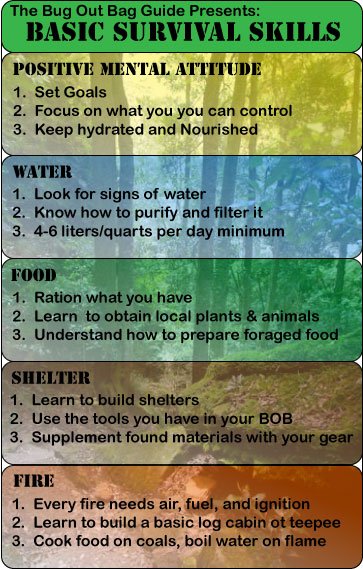
3. Is it safe to be here?
Once a crisis has occurred, you need to establish if your home’s integrity was affected or if it will be affected in the future. If you notice cracks in the walls or if there are large holes in your roof, you should leave your home. Since you are not a construction engineer, you cannot establish how long the home will stand. It may very well crash down on you, tapping you for God knows how long. Act based on the information you have and don’t get trapped.
If a hurricane will hit your region, logic dictates that you should seek safety in an underground shelter. If waters are rising and you are caught up in flood, heading up may be the only way of escaping. However, don’t get trapped in the attic and bring some tools to make your way out. Many people die during flooding because they cannot escape from their attic once they end up there. Most emergencies will dictate a specific course of action and you should evacuate if you consider it’s not safe to stay put.
4. If I need to get out of dodge, how far and how fast do I need to go?
This question is strictly related to your bug out plan, and if you don’t have one, you might as well hope things will go your way. If evacuation is foreseen in your future, a bugging out plan becomes mandatory. You should have a destination point with three or four alternative routes to reach it, some stopping points which can serve as meeting or observation points, and last, some caching or re-provisioning points.
The timing of your bug out plan should be calculated based on the required travel distance, and this means you should make calculations for traveling by both vehicles and on foot. Also, you should acknowledge that every stopping point will affect the overall timing and the time of travel (nighttime or daytime) will also influence the speed of travel. Make assumptions and plan some buffering time. However, all this means squat if you don’t practice based on your bug out plan. You need to test it a few times to make sure it is feasible for everyone.
5. Based on what caused the event, where should we go?
Although this may seem like a contradiction, if you have a bug out plan, things may not work the way initially planned. Certain events will force you to rethink your actions. Think about it this way, if you are evacuating because a wildfire is threatening your community and once you’re on the road, you find out the fire is also heading towards your bug out location, then going there should be out of the question. There are certain events that could block your escape routes and in some cases, hunkering down may be your only chance of surviving said events.
If your family is out of town or anywhere else that would require a long detour, your destination point may change more than once. Having a bug out plan is, without a doubt the right way to go, but having a backup plan to your bug out plan should also be considered.
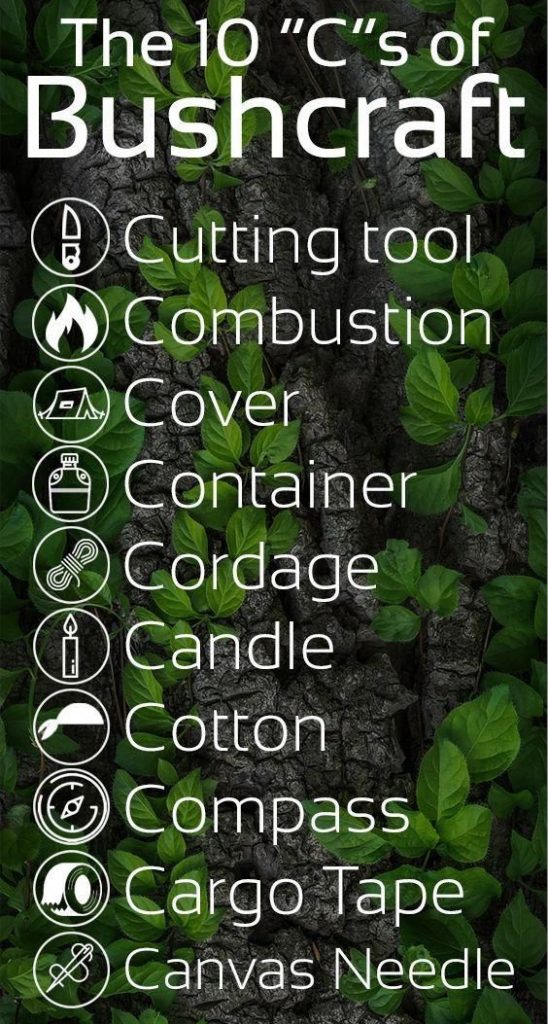
6. What is readily available to take with me?
The importance of a bug out bag is not up for debate, and everyone knows that a survival bag (may it be a go home bag or other customizations) will increase one’s survival chances considerably. If you are not preparedness minded, you can still take supplies with you that will keep you alive for some times. The type of supplies you can carry such as food and water, the tent you’ve used during your camping trips, money, etc.
Take things that are in reach and the ones you can carry, regardless if you go by foot or vehicle. If time allows it, I recommend using your mobile phone and taking a few pictures of your home, both inside and outside, before you go. This will allow you to notice if something is missing and will greatly help with the insurance.
7. Is the current season an obstacle for my survival plan?
Going into the woods during the cold season is a totally different survival game compared to the warmer months. Most people organize their bug-out bags, and they forget to upgrade (or update them, if you will) for the particular season. This is what I call seasonal prepping when it comes to your bug out bag and you need to take it into account. A crisis might dictate your next moves, but the time of the year may affect your chances of survival worse than the crisis itself. Make sure you are equipped to face the seasonal weather.
Not to mention that driving is also different on snow, and it will affect the speed and the overall timeline of your bug out plan. Even if you travel by foot, cooking a meal and building a proper shelter is much more difficult in wintertime compared to summertime. These are things you should consider before stepping out the door.
8. Am I alone in this?
The nature of the crisis can drastically affect the social element, and as we all know, this is the most unpredictable and random factor when it comes to emergency preparedness. If you are not the only one affected by the event, and others around you are asking for help, you have basically two choices: leave them be or give a helping hand. Your decision may be influenced by many factors and it’s hard to predict all of them, what kind of training you have, and overall, what type of person you are.
Even so, assuming you have time to help others, the first thing you need to do is assess their condition. Deciding whether they should be moved or not is an important step, and it requires first aid knowledge. Triage may also come into play and telling someone their loved ones can’t be saved is not easy.
Deciding to make an improvised survival group is a complex task and requires certain actions dictated by the event itself. Every group, regardless of its nature, requires a leader. Without leadership, there’s only chaos.
Keep in mind that improvising a survival group will take a toll on your time and resources. In a survival situation, the main thing you need to keep in mind is that being selfish or altruist is always up for debate. Not everyone is a hero, and nobody can judge you if you do what you think it’s right for yourself.

9. Is it safe to get out or go back?
This follows under the “curiosity killed the cat” classification, and regardless if you hunkered down or bugged out, at some point, you will have to go back or emerge from your shelter. The hardest part here is to decide when it is best to do so and everyone has different timing. The timing is calculated based on the type of information you manage to gather. You should listen to the world outside of the safety of your bugout or bug in locations by using any means you have (Radio, Internet, TV, etc.).
If you are bugging in, the safest approach would be to keep your head down and maintain a low profile. Observe the outside world without putting yourself at risk. The number of resources you have should give you a general idea when it is time to return to normality. Those who are bugging in may be forced to get out sooner if they don’t manage their supplies properly.
10. What are my next moves now that it has passed?
The nature of the event dictates your next steps. However, the safest course of action would be to assume that the event is a long-term one and may produce consequences that can last. If you are well prepared, you can last for months and you won’t have to worry.
However, at some point, you will need to figure out what you should focus on. Rebuilding is the next step for most Americans when dealing with a natural disaster. If the event has long-lasting and large scale consequences, one might want to become self-sufficient (which is impossible without planning for it in advance).
The point here is that even though it may be impossible to predict the aftermath of an emergency situation, you should not wait on others to help you. There are still people in Puerto Rico without power, and there’s no one who can tell how long it will last. Not to mention that the recent discovery of the unused hurricane aid is something that should make you think. When reading about it, my blood started boiling, and regardless of the anger I felt, for me, it was once again confirmed on how little the Government cares for its people.
The type of person you become and how you manage to mitigate the risks of an SHTF event is two things conditioned by your prepping plans.
Concluding
In the current state of the world, there are many concerns, but the most frightening part is that people are starting to see this as normality. If you feel that you are at risk and that something may one day alter your way of life, it’s better to develop a certain mindset that can keep you ahead of the masses.
You can’t afford to have any “unknowns” in your survival plan. Take some time and figure out if you have the right answers for the above-mentioned questions and I guarantee that you will discover new things that need your attention and involvement. Stay safe and be prepared!


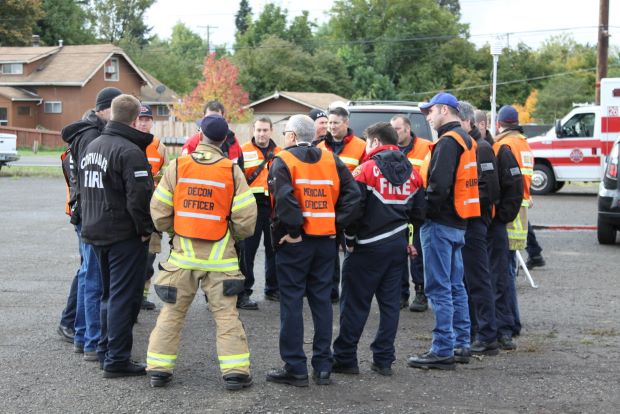


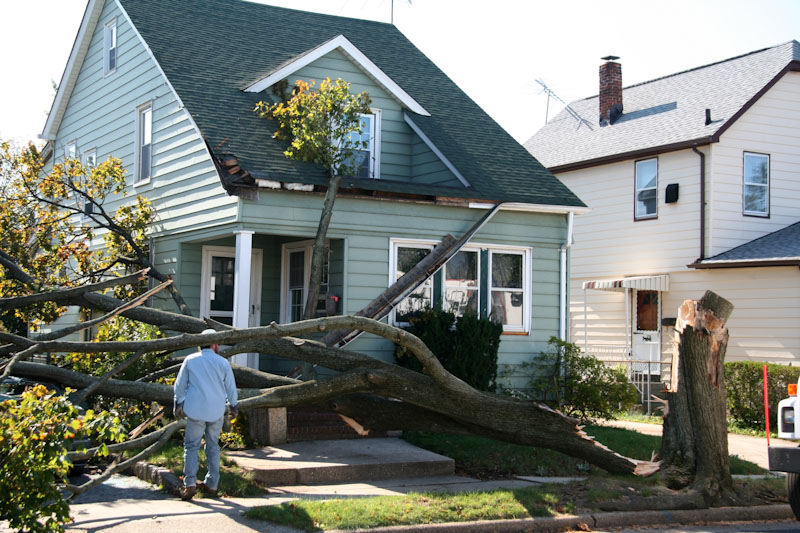
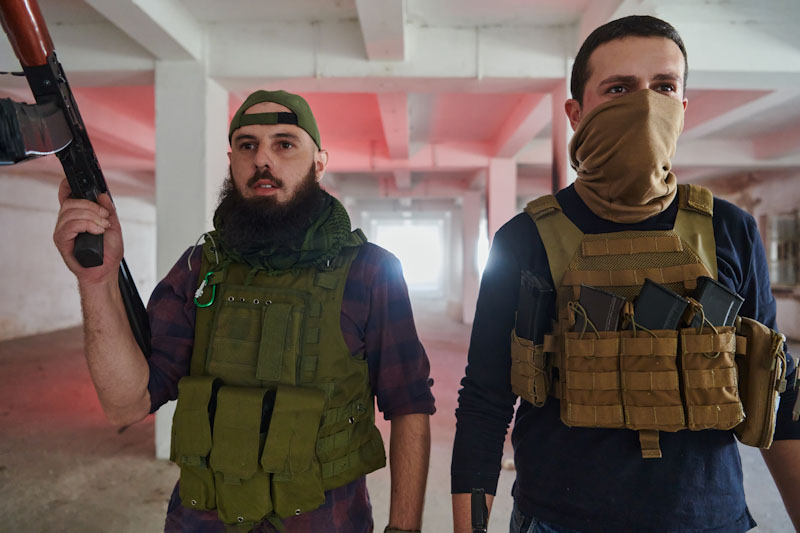



Phantom30 | May 25, 2020
|
Well friends the SHTF, past tense, so now what? There are five things you NEVER want to do:
1) Never think you know it all
2) Never be disarmed physically or spiritually
3) Never get on the bus
4) Never stop improving your situation
5) Never quit
Always seek His face, hear His voice, and obey His will and it will pan out.
Christa | May 25, 2020
|
I just want to put in my total agreement with @Phantom30. Thank you for sharing that!!!
DannySea | May 25, 2020
|
What? And don’t drink the kool-aid prior?
Phantom30 | May 25, 2020
|
The Kool-aid is fine, its the Cyanide that’s the problem.
William Flynn | August 7, 2022
|
You left out one other thing, don’t ever vote for a Marxist Democrat.
Daniel Turner | July 15, 2024
|
First and foremost in my opinion is know where the exit is. At some crowded event?
Panics have happened many times before so if possible have a seat near the exit or at least close.
Might need to get out of town in a hurry?
Have a plan in place of how to do it.
TAL | January 23, 2021
|
Liberty or Death!
If they try to take Our Liberty, THEY WILL DIE!
David Boisson | January 25, 2021
|
Who is they, just curious?
Nick Ro | February 3, 2022
|
WHO??? 80 year olds in Washington who have given themselves too much power and wealth.
AND…the 4 in 10 who just don’t get it!!!
40% or more of this great Republic will need to be reducated about American good and bad.
I fear it’s too late. The commie education indoctrination system has screwed US and need to be delt with. Reading Writing Rithmatic History Communism should be mandatory learning.
Yours truly,
Patriot RO
“The only good COMMIES are DEAD commies”
Elena Zeiler Zeiler | April 14, 2024
|
YES , NICk! YOU are right on ! Hope the RIGHT MAN wins in November:)
Alan | June 26, 2023
|
At the time of that statement, it was the British and the “Patriots” were fighting to be liberated from the British rule under a King. Eventually, the British were defeated and the New England Areas adhered to a Constitution. Those that didn’t want to live under a dictatorship’, would rather have died than be defeated
Bill In Idaho | August 8, 2021
|
Hey, Phantom 30 – You are on the [Only] Right Track. Thanks for the reinforcement.
Bill in Idaho | May 26, 2020
|
A Really GOOD Article, Bob. I like the way that you present your ideas . . . You use just the right amount of detail to capture the idea(s). Your sequence or Order is excellent – Best way to get everyone thinking in the right direction – step by step. Amen and Thank you.
Susan Breton | August 22, 2020
|
Bob, thank you. I’m new to this whole SHTF and Bug Out Plan, but I’m a believer In both. My next plan is to buy a gun and learn to shoot with my cousin and sister. Stockpiling food like beans, rice, and other long-lasting foods is something I already do. I appreciate you and your article more than you know.
Susan Breton | August 22, 2020
|
Also: Phantom 30, Thank You!!!
Mary Smith | August 24, 2020
|
Thank you for these very good, common sense ideas especially prayer.
Benny Drill | May 4, 2021
|
Too late, it was signed over years ago, before anybody saw it happening. Red pill time.
deadwaters | February 3, 2022
|
so how would any of this apply to the switch from cash to plastic only, and would this lead to the nest civil war? how would any of you act? bugging out wouldn’t seem to do much good.
Fed Up | December 26, 2022
|
Stay out of their Digital Currency system, and use other methods of payment whether it is silver and gold coins, or semi-precious metals like copper and pewter, along with the barter of goods and services. Most people have one and two skills that can be used to trade with others for the items that they need, without involving the gov and its taxes. Let’s ask a basic question. Who the hell authorized these damned Politicians to screw around with our money in the first place? Impeachments and Prison should be taking place across the Country.
Daniel Turner | July 15, 2024
|
Good luck with that. You may have no choice but to pay for things in that manner. But! Have alternatives as you say.
Jana Doak | April 8, 2023
|
What I read from those who had to flee in WWII is good shoes. This wasn’t about detail, but I remember that and that lives were saved by it.
LaWYERS Assoc | April 12, 2024
|
The governor here in New Jersey is a Democrat. And. We are not allowed to have guns to protect ourselves. If they had an open policy, carry guns on the outside of your. Coat like other states There’d be less crime here..
Shya | April 15, 2024
|
LaWYERS Assoc Thank goodness we are at last getting rid of him. I truly hope they/we don’t fall for the crap they democrats put up again, and get a better option this time around. Cittiarelli(? spelling?) is at least TRYING again to get in there. He’s better by far.
Even CCW will be a help.
JOHN SILVERS | April 12, 2024
|
Thanks Bob, his article!
Water, food, shelter, security, comms, , whether you bug in or bug out make sure you have all of the above for at least 6 months.
This isn’t about outrunning the Bear, is about outlasting the herd.
radar | April 12, 2024
|
Jana, get short-cut silk nylon stockings at least for foot and ankles, and even as high as middle of calves if tall boots are used. Get them for everyone traveling if they will be walking. It helps reduce blisters and blister severity when boots or shoes may not be broken in yet, or when feet aren’t ready for long hikes. Even
‘grunt’-military in boot camp are told by “those in the know” to bring nylons o prepare for the 10+ mile hikes carrying their ruck sacks (0ften 50 lbs). Badly blistered feet can be extremely painful, and not so easy to heal.
Shya | April 14, 2024
|
“You can’t afford to have any “unknowns” in your survival plan.”
Seems to me there’s ALWAYS going to be unknowns. All we can do is try to minimize them, but we can’t possibly account for everything.
Do the best you can, but at the same time try to live in the “now” as well. If I devoted every waking moment to preparing I still would not cover all eventualities, and my “better half” would not be around for long.
Shya | April 14, 2024
|
RADAR, you added in something that rarely comes up in discussions like this, it’s a good one. I keep a few pair of thin “quick dry” socks in my bag, and my dresser. They are JUST THIN ENUFF to fit under regular socks, or can be used in place of them in a pinch.
Thanx for the reminder.
CSRA Press | April 16, 2024
|
Good information for everyone. The SHTF is already happening. It is tough to determine who you can trust in situations like these. It is best “to stay under the radar” and don’t let others know what you have and what you plan to do. It will be difficult to leave friends, neighbors, and others behind, but you have to take care of family first and then try to help others. Unfortunately, it is human nature to “save yourself” and giving too much information to others about what you have and what you plan to do could force some of them to turn on you even if you have helped them or are helping them. I keep a “bug out” loaded back-pack in my vehicle all the time – never know when, where, or how the worst is going to hit. Again, unfortunately, too many members of my family don’t believe in my preparedness efforts and that leads to questions of whether or not I should allow for my stuff to help them when it does hit unexpectedly. Prayer is the Best & God Knows Best. I believe He did say in His Words something to the effect of: I will help those who help themselves. Be prepared for I will come as a thief in the night when least expected without word or knowledge. I will meet your needs, if you truly believe. I may not give you what you want, but I will meet what you need! Sadly, we are reaping what we have sown in this great nation taking too much for granted and abandoning God, Jesus, and His Words. I pray for President Trump and our nation turning back to God and getting rid of the Satanist Demoncrats, Republicants, Regressives, and those who intend to take America down.
Shya | April 18, 2024
|
CSRA Press, thank you for your intelligent and prescient comments. I hope you manage to keep your family and yourself safe, and that your prayers are answered.